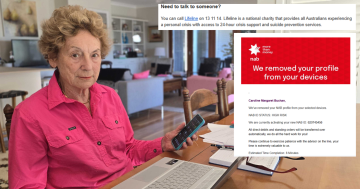 New figures released by the Australian Competition and Consumer Commission (ACCC) have revealed that young Australians lost more than $5 million in scams last year, with reports from under-25’s increasing at a faster rate than those from older generations.
New figures released by the Australian Competition and Consumer Commission (ACCC) have revealed that young Australians lost more than $5 million in scams last year, with reports from under-25’s increasing at a faster rate than those from older generations.
Deputy Chair of the ACCC, Delia Rickard said around 12,000 reports made to Scamwatch last year were from people under 25, an increase of 11 per cent on 2018 figures.
“Reports from this age group increased by 10 percentage points more than any other age group,” Ms Rickard said.
“Scammers don’t discriminate based on age and the wide range of scams reported by this age group is concerning,” she said.
“Young people may think they are tech savvy, but scammers are adapting and we expect to see more scams on newer platforms such as Snapchat and TikTok.”
She said Facebook and Instagram were the most common platforms for reports and losses by those under 25, with typical scams on these platforms involving fake online stores or the sale of fake tickets to events.
“Almost half of the losses to people under 25 occurred through bank transfer but you should also be wary of sellers asking for payment through unusual payment methods such as gift cards or bitcoin,” Ms Rickard said.
“Always try to purchase tickets from authorised sellers and be aware that many links sourced through social media will not be legitimate.”
She said scammers were also targeting children who played online video games, such as Fortnite, by offering unlocked achievements or special items in exchange for money or gift card codes without ever transferring the item.
“By targeting children, scammers could obtain personal and banking information from the individual’s parents,” Ms Rickard said.
“We encourage parents and guardians to ensure children do not share personal or banking details online, and if they think a scammer has gained access to their personal information contact their financial institution as soon as possible,” she said.
“You should also contact the platform on which you were scammed and inform them of the circumstances surrounding the scam.”











